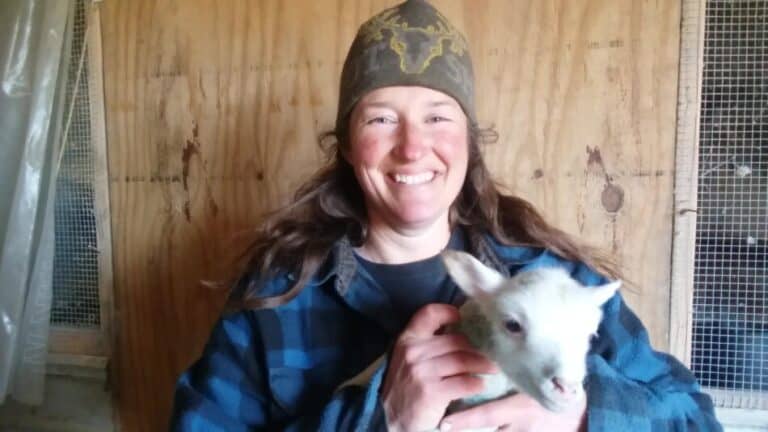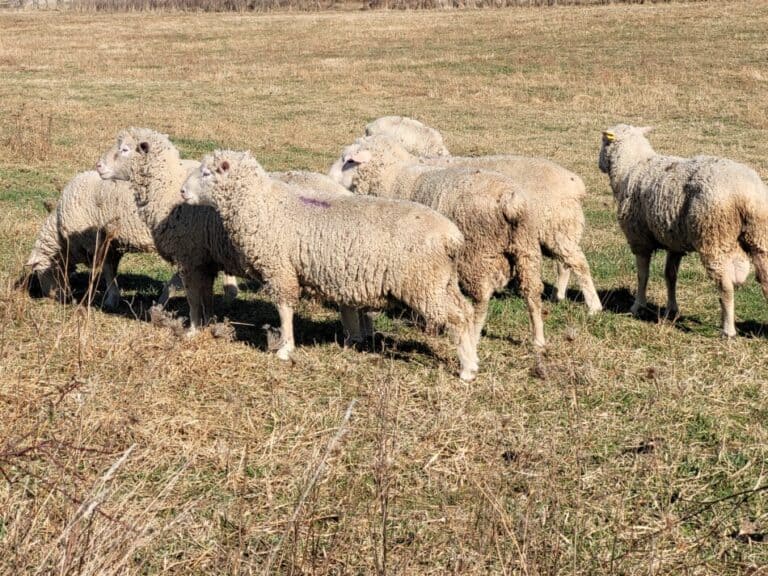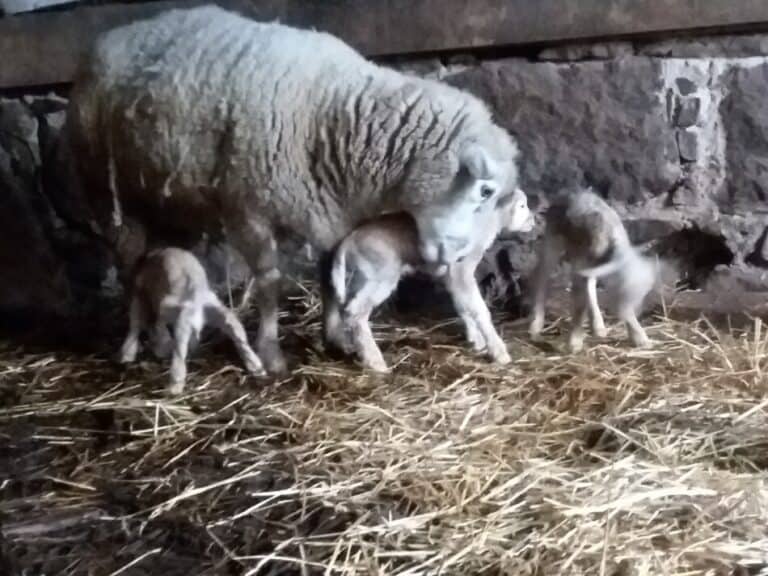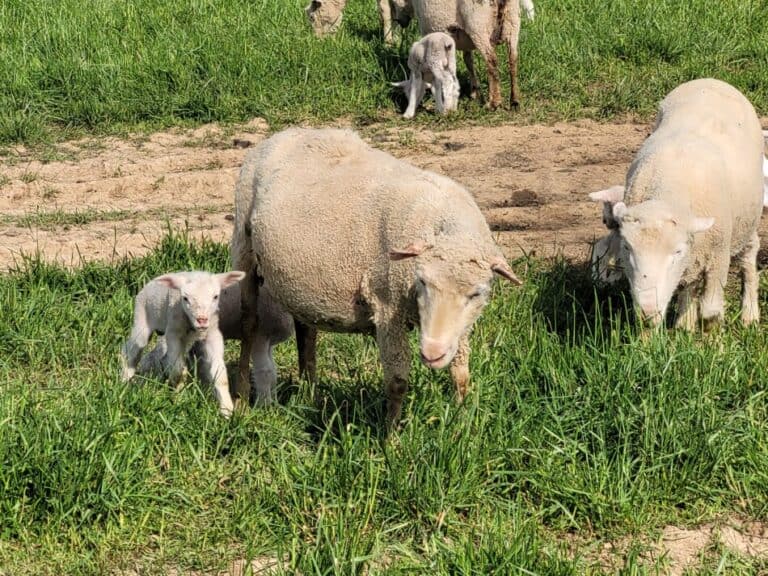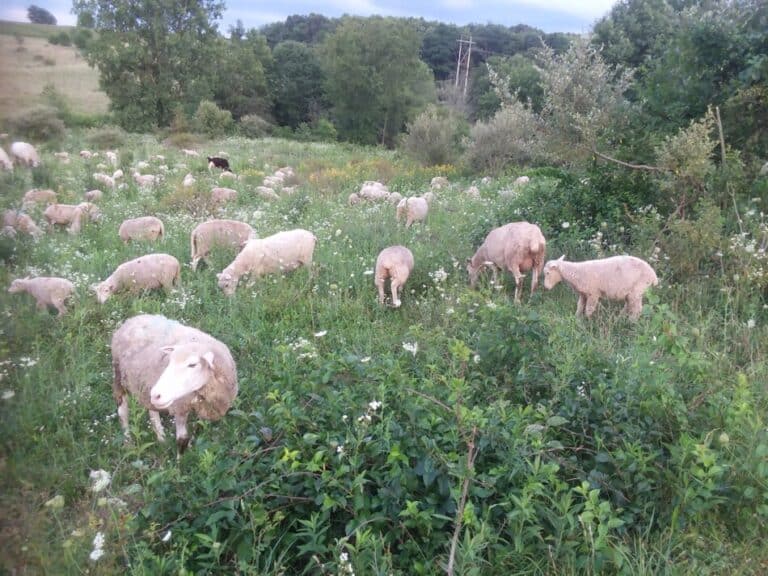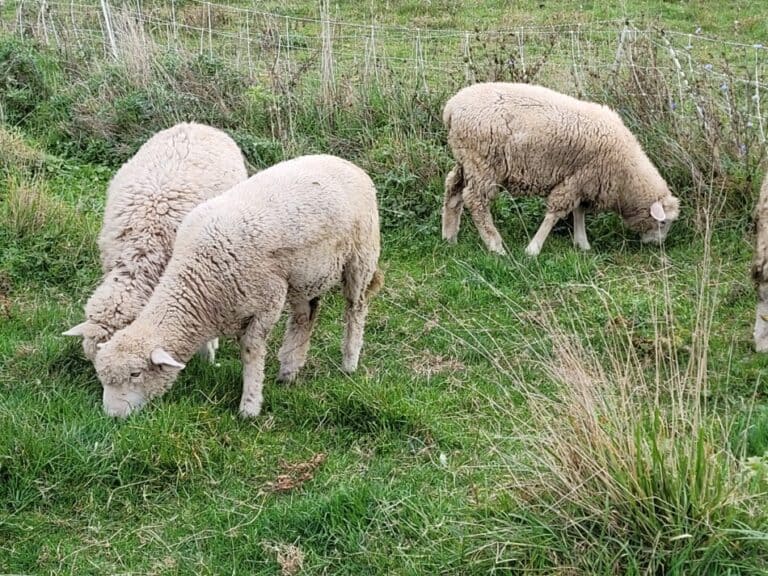How Do You Know If Sheep Have Worms?
Sheep are susceptible to worms and, unfortunately, those worms can cause tremendous problems with your flock.
Your job is to take care of the flock and handle any problems that come up, but there’s the catch: since the parasites are inside the sheep, how do you know if your sheep have worms?
Sheep that have an overload of internal parasites (worms) will be losing weight, lack energy or enthusiasm, have pale eye membranes and have high fecal egg counts.
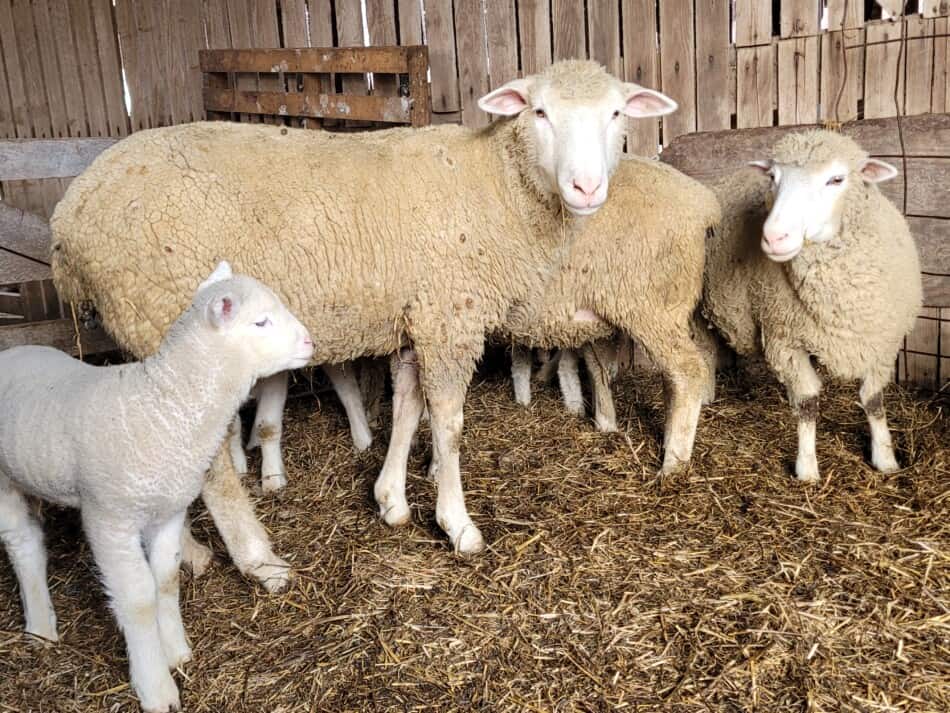
Physical signs that your sheep has worms
One of the first things most folks notice about sheep that makes them suspect worms in the flock is that the sheep are not keeping on weight.
In a parasite infested sheep, inability to keep up her body weight is due to the internal parasites stealing a portion of her blood and the nutrients it contains before the sheep can use those nutrients for herself.
Is Keeping Sheep Easy? is my article that goes into some of the things a shepherd needs to handle on a daily basis, one of which is dealing with health challenges like parasites.
What to look for on the sheep
When your sheep have worms what you are likely to see is that the sheep seem to be losing weight rather than gaining it.
Does the ewe look full? On people, we tend to think of a big belly as a negative, but in sheep it is actually a good thing, this is where the food is worked on by her microbial factory and turned into energy.
Taking in plenty of food and having a full tum is what you’ll see in a healthy sheep and the opposite of what you’ll see in a parasite stressed sheep.
The parasite stressed ewe will start to lose her full tum and look more tubular. As this happens her fat reserves on her body are being used up, which makes ribs and backbones more prominent.
The parasites are stealing more from the ewe than she has to spare. She has an overall loss in weight, even though she is eating enough food that she should be gaining or at least maintaining her weight.
Ewes that are losing weight need dewormed as soon as possible. The parasite population must be cut to save the life of the ewe, yes, it’s that serious.
To be upfront, there are other reasons a ewe might be losing weight, but with sheep, we have found that it’s most likely parasites. Knock out the most likely problem first and see what that does for her.
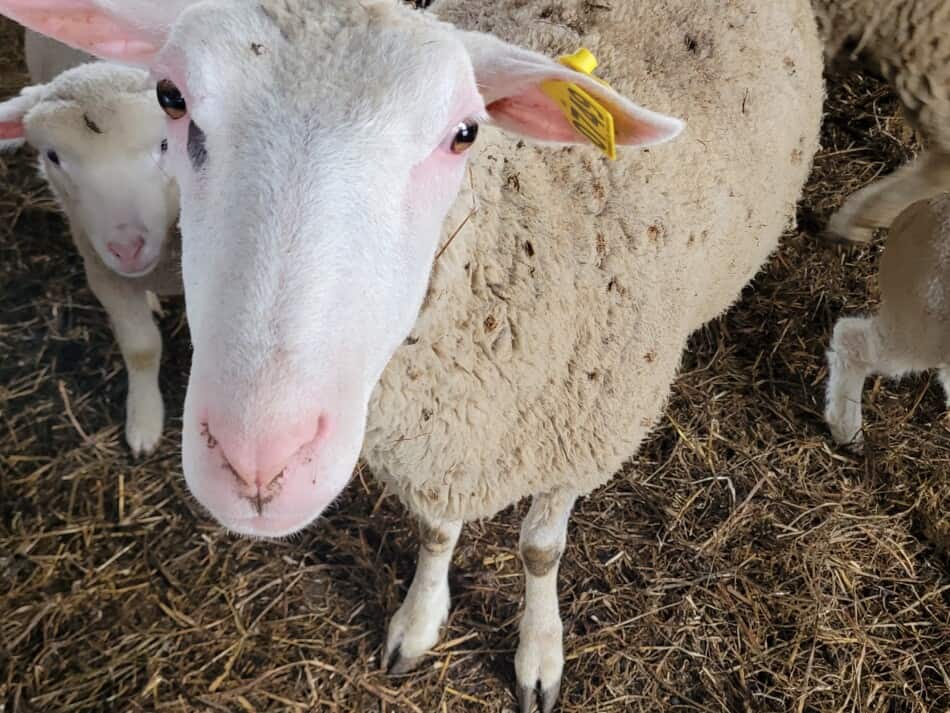
What to look for in the poop
Depending upon the parasite, some times the parasites cause diarrhea, poopy butts, runny plops of poop on the ground or poop with little segments of worms in the pile.
The confusing part here is that sometimes what you’ll see is nothing, the poop and the backside of the sheep or lamb look great, yet clearly something is not right or the sheep would be gaining weight!
Use a microscope to see eggs
This is where you need to use a microscope to look for eggs or have a vet do this for you. This will give you an idea of what parasites you are dealing with and in what numbers.
You can also start to identify high parasite load individuals and cull them, which will help to stop the spread of worms to the rest of the flock.
Most of the time a sheep that is losing weight or unhealthy has worms. The problem with the sheep being something other than worms is not likely.
Please note that one test of eggs in manure just shows you if the parasites are present in the sheep. If you want to see if the parasites are killed, you need to retest after deworming.
This procedure is spelled out in this article at Sheep 101, which will also teach you how to understand the results to know if your dewormer is still working effectively.
Looking at the eyelid (FAMACHA test)
An on farm method that is becoming more popular is to look at the coloration of the lower eyelid and compare the color to a chart to show the level of anemia, which is an indication of worms.
This test is called FAMACHA and is quick for both you and the sheep. You compare the the inner eyelid skin color, anywhere from white to red and compare it to the chart to see if the animal needs dewormed.
Have someone show you how to perform the FAMACHA test and see if you want to use this method of parasite detection.
What is FAMACHA system and how do I get a card? at Sheep 101 is a great place to start.
Please note that this is not foolproof, some animals can have high levels of parasites and still have good to great FAMACHA scores. For the most accurate test of parasites, you must do the fecal egg count.
Behaviors that might mean your sheep has worms
Sheep that have an overload of worms start to show other problems, like lagging behind the group or general lackadaisical approach to life rather than jumping right in and eating like a healthy ewe or lamb.
Healthy lambs like to play around with each other, run and jump and explore. Lambs that are dealing with a parasite overload will be slow to respond, not gain weight well and seem almost a bit dopey.
And for good reason, they are carrying a stomach full of little stealers so the lambs are being nutritionally robbed. Of course they feel poorly and are not growing well!
You may see other problems start to show up in your sheep, like foot problems or sickness. What do these things have to do with worms? Worms drag down the entire system of the sheep.
She is working hard to give herself the energy she needs and the worms steal it, that shows up as problems in the entire body, anytime she has a health challenge from bacteria to general stress.
She is much more susceptible to problems because the parasites are stealing her ability to maintain and repair.
How To Find The Right Sheep Breed For You is my article that goes over things to look for in sheep that fit your farm.
What to look for with your feed
The other place that you may notice worm problems with your sheep is in the amount of feed they are eating compared to the resulting growth you are seeing, or more likely, not seeing!
Have you noticed that you are feeding the same quality of hay to your sheep yet getting less results?
After you have considered that the sheep’s feed or energy needs may have changed, but nothing like that has happened, the next obvious place to look is parasites.
How Much Does It Cost To Feed A Sheep? is my article that goes over figuring up the costs to feed a sheep based on your situation.
What if you have already dewormed?
If you have already dewormed yet are still having problems with what looks like a parasite overload, there are a few more things to consider.
It may surprise you to know that not all stages of internal parasites are killed by dewormers, the dewormers normally only get the adults.
This means that some of the less developed larvae can continue to mature and of course the eggs will continue to pass out with the manure.
Are you using a dewormer that kills the specific parasite that your sheep are dealing with?
For instance, if you think your main parasite problem is liver flukes, read the label to make sure it lists out liver flukes, not all dewormers can kill all types of parasites.
You have to match the dewormer to your needs.
You also have to consider that your dewormer may not be working for these parasites anymore. It could be the formulation has changed, the parasites are resistant or the dewormer is being used incorrectly.
If you have been using the same dewormer yet getting little to no results, you need to contact your vet and figure out what to do next in order to successfully deworm your flock.
Sheep 201: Internal Parasite (worm) Control gets into more details on parasites and sheep, going from what the parasites are to how to deal with them.
